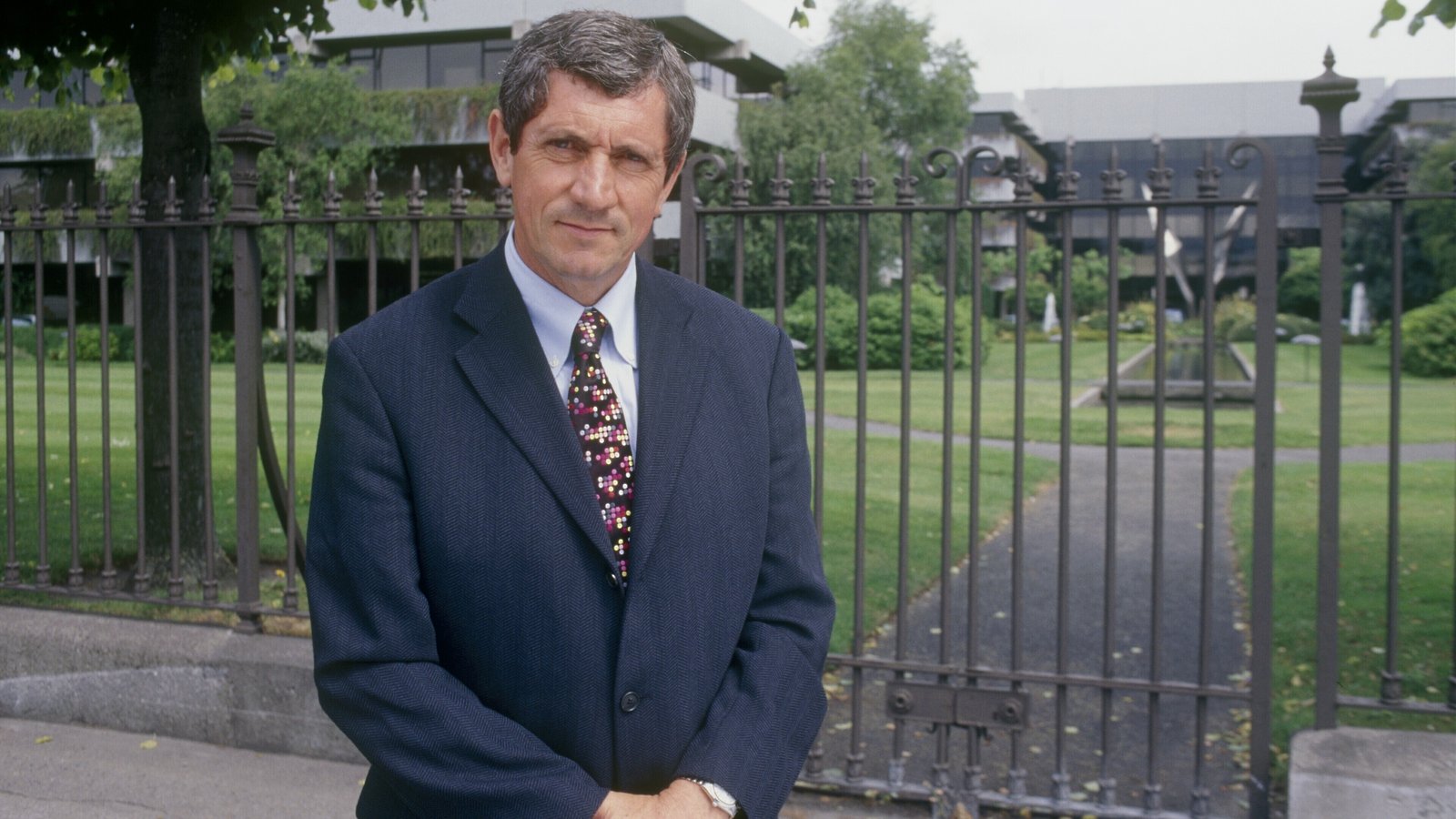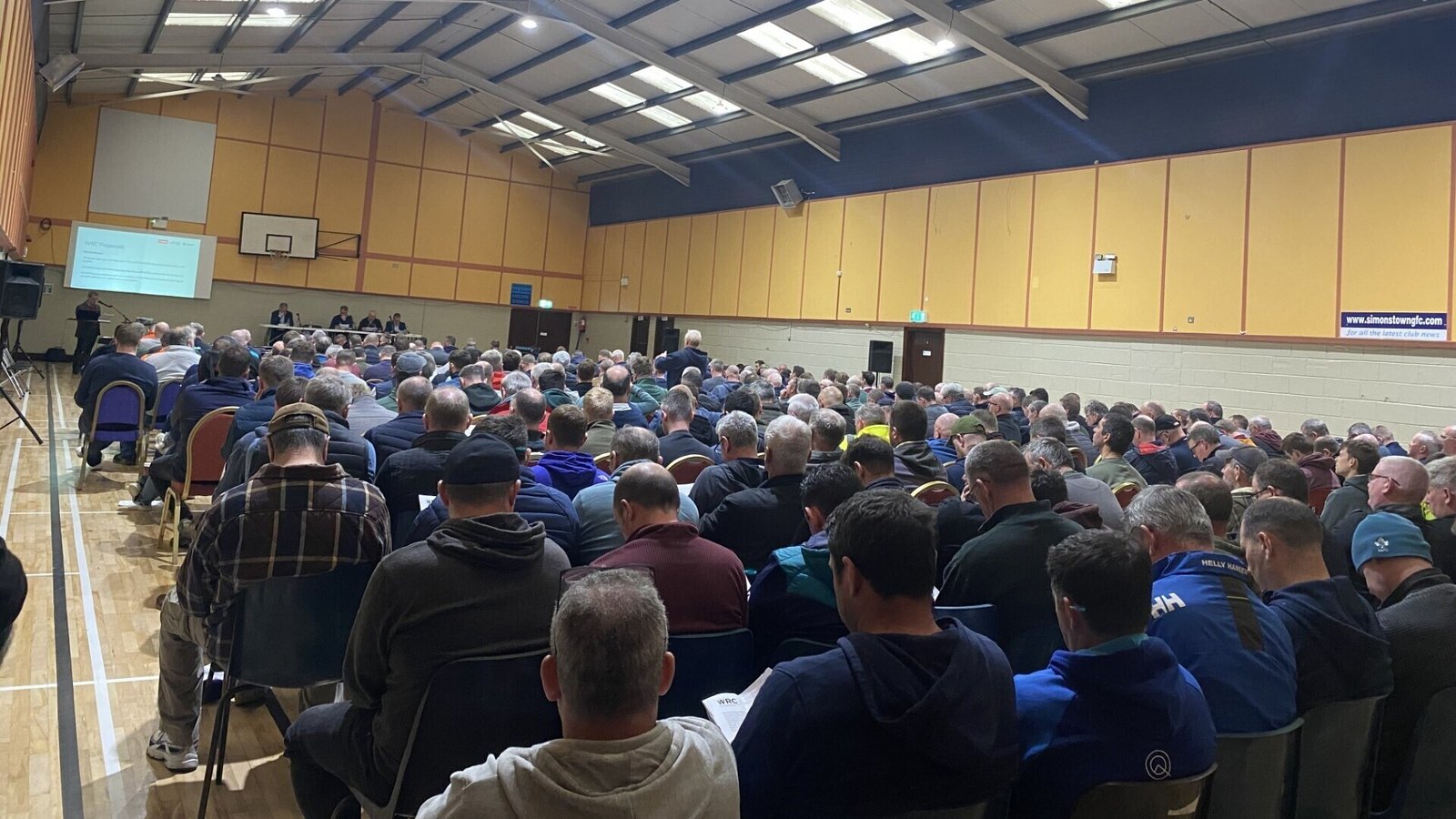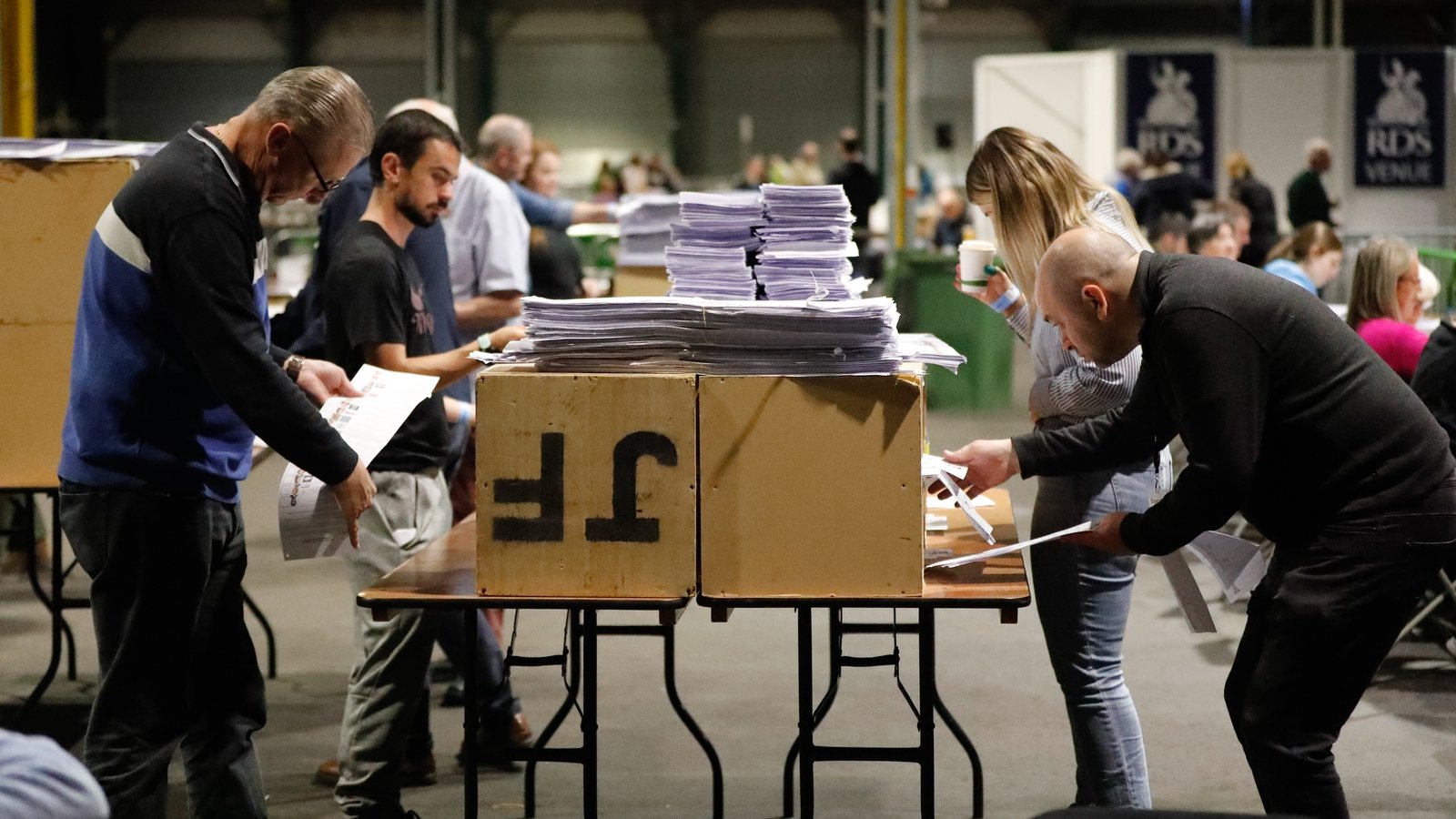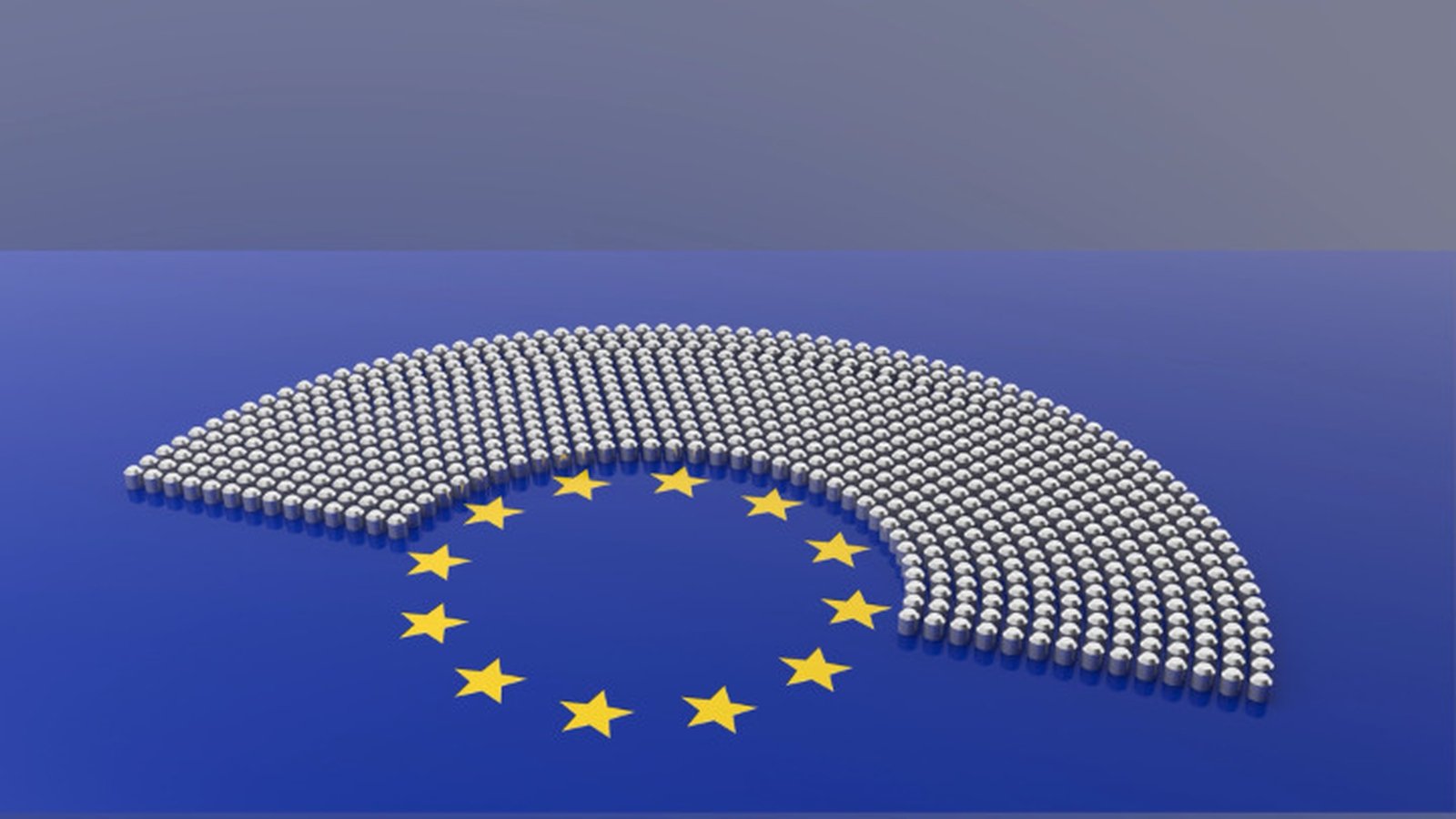Political power clash between Poland’s govt, president

Divisions between Poland’s new pro-EU government and its conservative president Andrzej Duda had been expected when Prime Minister Donald Tusk’s cabinet was formed last month.
But almost each week has brought a new confrontation between both camps.
The new government’s changes to public media, its dismissal of the national prosecutor and the jailing of two former lawmakers have been met with criticism from Mr Duda.
Mr Duda is a former member of Law and Justice, and was backed by the party as its candidate for the presidential election in 2015. He won that election and narrowly won a second five-year term in office in 2020.
“The new government clearly has a plan and wants to reinstate things as they were,” Marcin Zaborowski, policy director with think tank Globesec, told RTÉ News.
That involves, he said, re-establishing an independent judiciary, an independent constitutional court, an independent supreme court and public media that is not politicised.
During its eight years in government, Law and Justice enacted legislation to assert greater political influence over the country’s highest courts, reducing the independence of judges.
The European Commission deemed that the changes to the judiciary threatened the rule-of-law in Poland and led to the freezing of more €100 billion in EU cohesion and recovery funds for the country.
Mr Tusk’s government is hoping that by unravelling the work of Law and Justice, it can unlock those billions of euros.
Some headway has been made on that front already. The EU released €5bn in aid in December.
On Friday, EU Justice Commissioner Didier Reynders met Polish justice minister Adam Bodnar in Warsaw to discuss judicial reforms that could release more of the frozen funds.
Mr Reynders told reporters that he was “very pleased that the Polish authorities are determined to restore the rule of law in Poland”.
However, public media has been the first point of division between the new government and Mr Duda, along with supporters of the previous Law and Justice administration.
A few days before Christmas, newly-appointed culture minister Bartlomiej Sienkiewicz sacked the senior management of public television, radio and the Polish Press Agency (PAP).
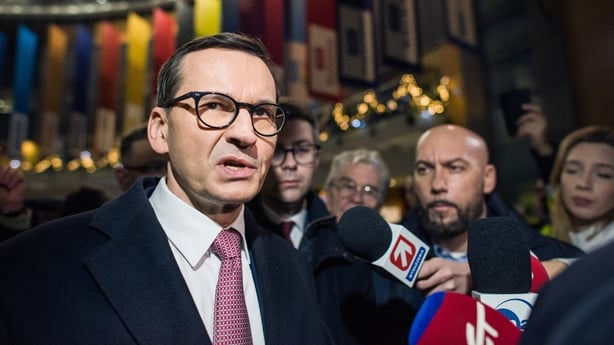
The government then announced that it would put the three outlets into liquidation.
For the past eight years, 24-hour news channel TVP had become a mouthpiece for Law and Justice.
International media watchdog Reporters Without Borders described Poland’s public media during the Law and Justice years as “instruments of propaganda”.
Mr Tusk has said that he wants to restore the editorial independence of public media.
New senior editors have been brought into TVP to reshape news and current affairs coverage.
In contrast, Mr Duda called the removal of the heads of public media a “violation of the constitution”.
His criticism is based on current media law in Poland.
In 2016, Law and Justice established the country’s National Media Council, a body which could hire and dismiss the heads of public media. However, Law and Justice maintained three of the five seats on the council.
By directly dismissing the media bosses, the new coalition government had circumvented the media council.
“This battle will continue to go on in public media. There will be new bills, new laws. But, all in all, the new government took control of television,” Wojciech Szacki, political editor of Polityka Insight, told RTÉ News.
For weeks, Law and Justice politicians and supporters, staged protests at the offices of TVP and PAP, with crowds chanting for a “free media” outside the broadcaster’s head office in Warsaw.
On Thursday this week, the Constitutional Tribunal, a court whose current 15 judges were all appointed by Law and Justice, ruled that the new government’s decision to liquidate the three public media outlets was illegal.
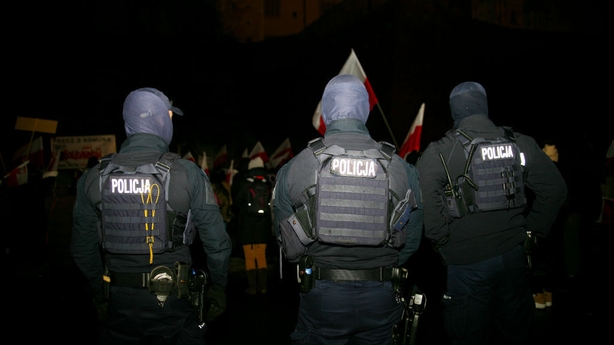
This week, Mr Duda criticised the justice minister’s dismissal of the national prosecutor, Dariusz Barski, who had been appointed by Law and Justice.
Mr Duda has also called for the release from prison of two former Law and Justice lawmakers, including the former interior minister Marius Kaminski.
Mr Kaminski and his deputy Maciej Wasik were originally convicted in 2015 for abuse of power when they both held top roles at Poland’s anti-corruption bureau in 2007.
Shortly after becoming president, Mr Duda pardoned the two men.
However, the pardon was issued before a final verdict was issued on their case – an unprecedented move in modern Polish legal history.
“A lot of lawyers in Poland, myself included, will tell you that this pardon has been ineffective, it was premature,” Jakub Jaraczewski, an expert on the rule-of-law in Poland, told RTÉ News.
In 2016, the Supreme Court found that Mr Duda’s presidential pardon had been incorrect.
However, Law and Justice intervened in parliament and lodged the case with the Constitutional Tribunal.
“What the Constitutional Tribunal did in 2017, was basically take this case, put it in the drawer and never open it again,” said Mr Jaraczewski, a research coordinator at Berlin-based think tank Democracy Reporting International.
With Law and Justice no longer in power, Poland’s Supreme Court sent the case back to a local court in December, which sentenced the two men to two years in prison.
In a bizarre twist, on 9 January, the two former lawmakers hid out in Warsaw’s presidential palace to avoid arrest by the police.
It was only after Mr Duda had left the building in the evening, that police moved in to arrest Mr Kaminski and Mr Wasik.
They have now started their sentences in two separate prisons outside Warsaw.
In practice, Mr Duda could still pardon the men, for a second time, and Mr Tusk has said that the government will accept Mr Duda’s decision on the matter.
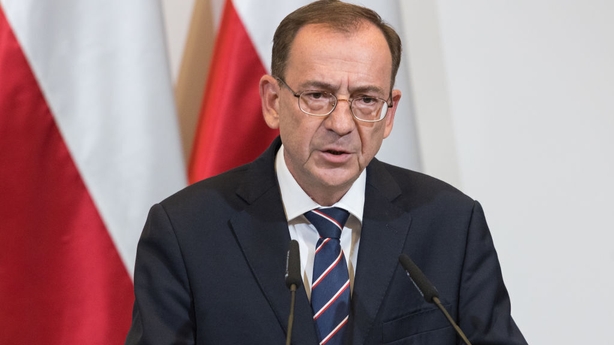
The arrest and imprisonment of the two former ministers served as a rallying cry for Law and Justice, still coming to terms with their party’s election defeat last October.
An estimated 50,000 to 80,000 supporters of the party’s supporters from all over Poland marched in central Warsaw last week to demand the release of the two men, who they call “political prisoners”.
It was large turnout for a cold January evening in the middle of the working week.
“I think Andrzej Duda is waging his own war against the government and he doesn’t cooperate with Jaroslaw Kaczynski and other Law and Justice leaders,” said Mr Szacki.
Last Monday, Mr Tusk and Mr Duda, who has 19 months remaining of his second and final term as president, met to iron out their differences.
Both leaders agree on matters of national security and supporting Ukraine, but differ strongly on domestic issues.
Mr Tusk said that Mr Duda had “a different opinion on the rule-of-law than I do” and that the president had played a role in the “the devastation of the legal order in Poland”.
Courts should decide who is guilty and not guilty, said Mr Tusk, not politicians.
The prime minister also said during his press conference that he and Mr Duda had agreed that the remainder of his presidency should “take place in a normal atmosphere”.
For his part, Mr Duda said that the dismissal of the national prosecutor by Poland’s new justice minister Adam Bodnar, had taken place without his involvement.
Such a move, said Mr Duda, was “a violation of the law” and needed to be discussed between the prime minister and president.
A tricky 18 months of cohabitation now lie in store for the coalition and the president’s office.
“Until President Duda is in office, and until he can veto any laws passed by the parliament, the new government will be quite limited in what it can do,” said Mr Jaraczewski.

